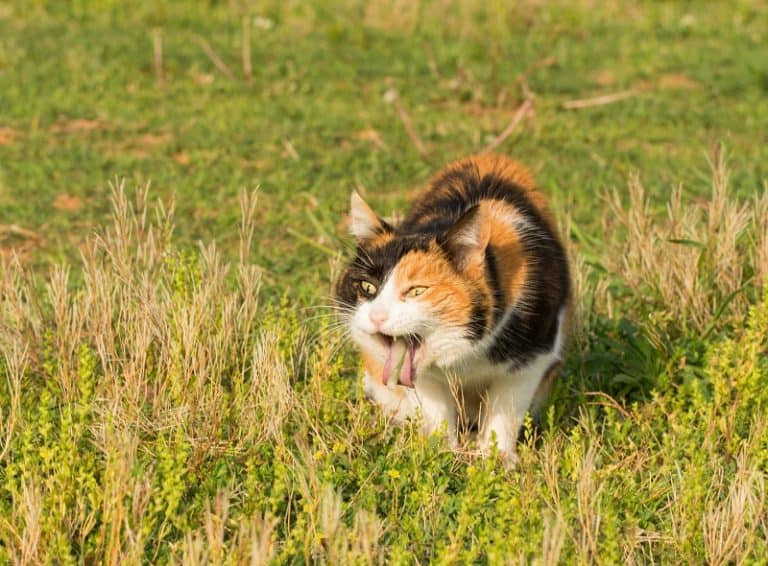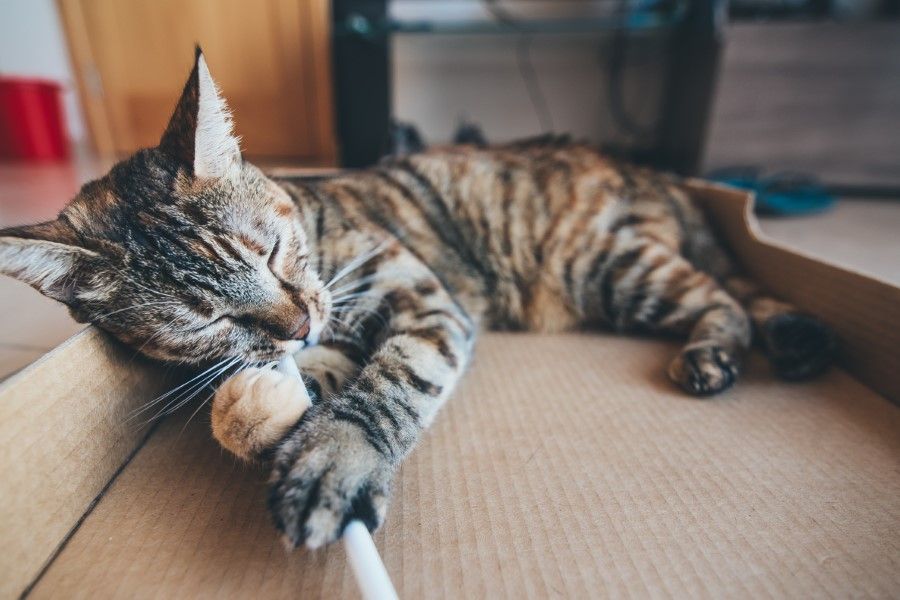

If your cat is also having diarrhea, it will be difficult to keep them hydrated without seeing your veterinarian. Sudden changes in the cat’s diet can also trigger vomiting and diarrhea. Cat food may contain byproducts that can upset the cat’s stomach. Your cat has other symptoms, such as not eating and diarrhea. One of the most common causes of vomiting in cats is diet. If your vet has ruled out other medical issues and thinks that what your cat is vomiting up is actually food, they may want you to try a commercial, sensitive systems food with your cat. One common cause of frequent vomiting is eating too much food, too fast. Your cat vomits more than two to three times in a row. If you cat is a habitual 'scarf and barf' cat or if they have intestinal sensitivities, that may be causing them vomit up partially digested or undigested food. Regurgitation is normally a consequence of gorging behavior however, some rare conditions affect the muscles and function of the food pipe (esophagus) which may lead to regurgitation. If your budget is tight, you could try your own method of making a slow feeder, by feeding from a flat plate rather than a bowl so that food moves around more and is, therefore, more of a challenge for your cat to eat. You should call your veterinarian right away if: 1. Store-bought puzzle feeders or slow-feeders will help by making it trickier for your cat to get at the food so that they have to make more effort and aren’t able to guzzle. This is why it is recommended that you feed your cat small portions throughout the day rather than large single meals. Overeating If your cat eats too much food, they are likely to throw up. One of the most reliable methods would be using a slow feeder. If your cat throws up barely digested food immediately after eating, the most common reason is eating too fast.
#Cat throwing up digested food every day how to#
It can be tough to know how to make a cat eat slower, but there are some methods you can try. To try to combat your cat’s gorging, you must try to change the speed at which they eat. For instance, if the cat has not eaten for a day and is vomiting undigested food, that would point to an obstruction or a motility disorder. It is important to know when the cat last ate. Some cats are prone to this behavior and it can happen regularly, even daily. It can happen with food intolerances or allergies, obstructions, or pretty much anything that causes upper gastrointestinal tract irritation. This usually means that their stomach was not empty at the time of their vomiting.

If your cat regularly gorges on food, quickly eating more than their stomach can comfortably contain, they may vomit the undigested food back up, reasonably soon after eating. Chunky cat vomit often represents the presence of food in your cats vomit. Why Do Cats Vomit Undigested Food? Overeating


 0 kommentar(er)
0 kommentar(er)
